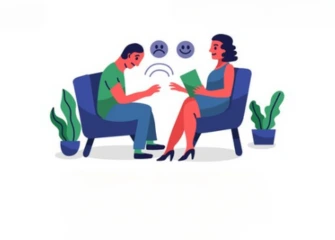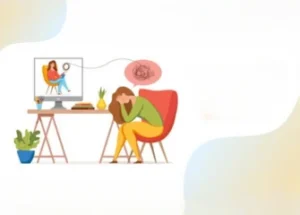
Exploring Psychology and Counselling Courses
Your Road to Making a Difference: Exploring Psychology and Counselling Courses
In today’s fast-paced and ever-evolving world, the need for mental health support has never been greater. People are seeking understanding, compassion, and professional guidance to navigate life’s complexities. If you’ve ever felt the desire to help others find their way through emotional challenges or wanted to understand the intricate workings of the human mind, a career in psychology and counselling might be your calling. We Will explores the rich landscape of psychology and counselling courses, guiding you toward a fulfilling journey of making a real difference.

Psychology is the scientific study of behavior and mental processes, while counselling focuses on applying this knowledge to help individuals, families, or groups navigate personal challenges. Together, they form a powerful discipline dedicated to understanding the human experience and promoting well-being. Professionals in these fields offer crucial support, helping people build resilience and find clarity in difficult situations.
Why Pursue Psychology and Counselling Courses?
- High Demand for Mental Health Professionals: With rising awareness about mental health, the demand for qualified counsellors and psychologists is growing.
- Personal Fulfillment: Few careers offer the profound sense of satisfaction that comes from helping others transform their lives.
- Diverse Career Paths: From clinical psychology to school counselling, the options are varied and abundant.
- Constant Learning: The human mind is complex, ensuring lifelong learning and growth in the field.
1. Diploma and Certificate Programs
These shorter programs provide foundational knowledge and practical skills. They’re ideal for those who want to start working quickly or add counselling skills to their existing profession.
- Duration: Typically 6 months to 2 years
- Best For: Career changers, educators, HR professionals, or social workers looking to specialize.
2. Undergraduate Degrees (B.A. or B.Sc.)
An undergraduate degree in psychology or counselling lays the groundwork for understanding human behavior and mental processes.
- Duration: 3 to 4 years
- Focus Areas: General psychology, developmental psychology, abnormal psychology, and research methods.
- Career Options: Entry-level roles in mental health support, community services, and research assistance.
3. Postgraduate Degrees (M.A., M.Sc., or M.Ed.)
These advanced degrees allow for specialization and often include supervised practical training.
- Duration: 1 to 3 years
- Specializations: Clinical psychology, counselling psychology, child psychology, industrial-organizational psychology, etc.
- Career Options: Licensed counsellors, clinical psychologists, school psychologists, and roles in academia.
4. Doctoral Programs (Ph.D. or Psy.D.)
Doctorates are for those aiming to become expert practitioners, researchers, or academics.
- Duration: 3 to 7 years
- Focus: Advanced clinical practice, research, or teaching.
- Career Options: Licensed clinical psychologists, university professors, or researchers.

1. Empathy and Active Listening
Understanding others’ perspectives is the cornerstone of effective counselling. Courses emphasize developing deep listening skills and genuine empathy.
2. Communication
You’ll learn to communicate complex psychological concepts in ways that clients can understand and apply.
3. Problem-Solving and Critical Thinking
Courses teach you to assess situations objectively, identify patterns, and develop practical solutions.
4. Ethical and Cultural Awareness
Understanding and respecting diverse backgrounds and ethical considerations are vital skills covered extensively in most programs.
1. Identify Your Goals
Do you want to work with children, families, or corporate teams? Are you more interested in research or direct counselling? Your goals will guide your course selection.
2. Research Accreditation
Ensure the program is accredited by relevant bodies, like the American Psychological Association (APA) or British Association for Counselling and Psychotherapy (BACP). This guarantees quality education and often determines licensing eligibility.
3. Consider Practical Experience
Look for programs that offer internships or supervised practice. Hands-on experience is invaluable.
4. Flexibility and Delivery Mode
Consider whether you need online, part-time, or full-time options based on your lifestyle and commitments.
1. Clinical Counsellor
Work in private practice, hospitals, or clinics, helping individuals address personal and emotional issues.
2. School Counsellor
Support students’ academic, emotional, and social development, creating safe and supportive learning environments.
3. Organizational Psychologist
Help businesses improve workplace dynamics, employee well-being, and productivity.
4. Community Mental Health Worker
Work with vulnerable populations, providing support and connecting clients with essential services.
5. Researcher or Academic
Advance the field of psychology through research or by teaching future counsellors and psychologists.
Challenges and Rewards
Challenges:
- Emotional Toll: Constantly dealing with others’ challenges can be draining.
- Ethical Dilemmas: Navigating confidentiality and professional boundaries requires strong ethical awareness.
- Continuous Learning: The field evolves rapidly, demanding ongoing education.
Rewards:
- Transforming Lives: Witnessing clients’ progress is incredibly rewarding.
- Personal Growth: The skills you develop benefit your personal life, enhancing your empathy and communication.
- Making a Difference: Every day, you help build a healthier, more compassionate society.
FAQs
1. What qualifications do I need to become a counsellor?
Most professional counselling roles require at least a bachelor’s degree in psychology or counselling, along with supervised practical experience.
2. Can I study counselling online?
Yes, many reputable institutions offer online programs, though practical components often require in-person attendance.
3. What’s the difference between a psychologist and a counsellor?
Psychologists typically have a higher level of education (often a Ph.D.) and can conduct assessments and therapy. Counsellors focus on providing support and guidance, often with a master’s or diploma qualification.
4. Is a psychology career financially rewarding?
While starting salaries can be modest, experienced counsellors and psychologists, especially in private practice, can earn well.
5. Do I need a license to practice?
Yes, in most countries, practising as a psychologist or licensed counsellor requires specific qualifications and licensing exams.
Final Thoughts
Embarking on a journey into psychology and counselling is more than a career choice—it’s a commitment to understanding, empathy, and positive change. The road may be challenging, but the impact you can make is profound and lasting. Whether you’re just starting out or looking to deepen your expertise, the right course can set you on a path to transforming lives, including your own.
Start exploring today, and take the first step toward a future where you truly make a difference.
